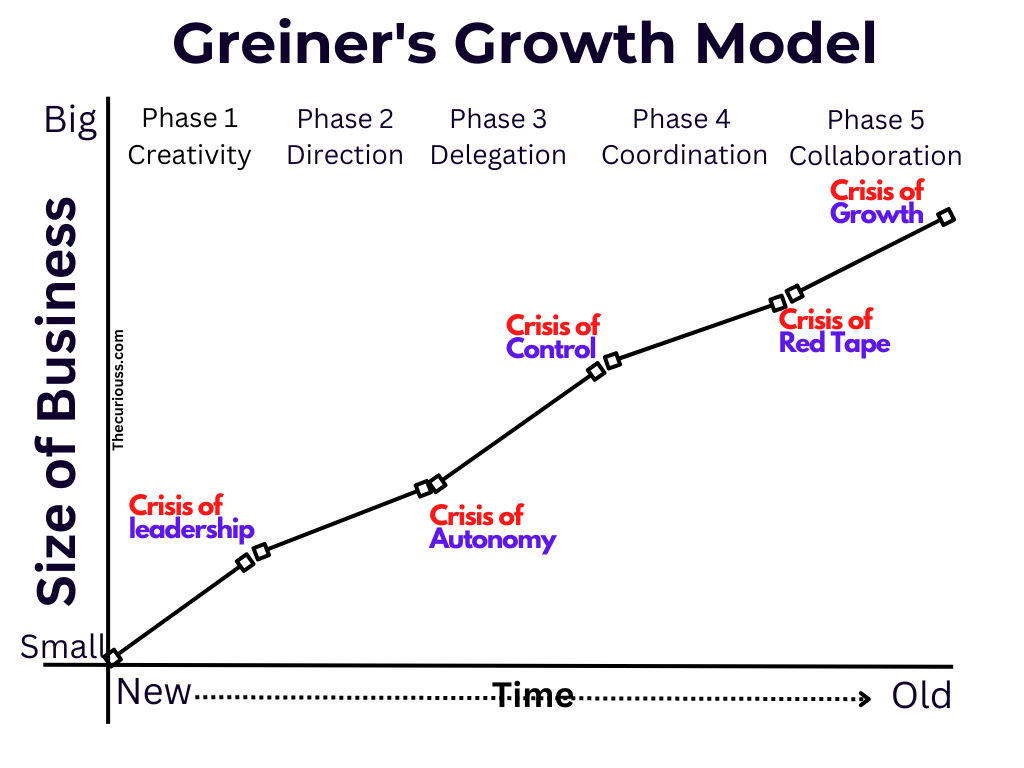- How to manage and overcome the problems of growth or retrenchment
Greiner's Growth Model
Predicts the six phases and five crises that business go through as they grow

An additional phase 6 comes after the Crisis of Growth, called Alliances.
Key Messages
- Growth is hard
- Poses many management and leadership challenges (crises)
- Leadership and organisational structure has to evolve to reflect the growth of a business
- Businesses that don’t adjust will experience lower growth than those that do
| Phase | Crisis | Notes |
|---|---|---|
| Creativity | Staff levels are low growth comes from owners working longer hours. Informal communication works. | |
| Direction | Leadership | Informal communication starts to fail so firm sets up specialised departments and formalises communication. Founder still makes strategic decisions. Business now too big for leader to get involved in everything. |
| Delegation | Autonomy | Business now has functional management through middle management. But founder still struggling to let go. |
| Coordination | Control | More formal management structures in place usually performance related pay structures introduced. But new layers of hierarchy needed to keep control. |
| Collaboration | Red Tape | A dangerous growth in organisational bureaucracy, slowing decision-making and missing external changes usually solved by a matrix structure. |
| Alliances | Growth | Growth slowing as business runs out of ideas. Alliances are sought (including new business owners) |
Criticisms
- Like most models - very simplistic
- Not every business will suffer crises as it grows, many adapt easily
- Model doesn’t really take account of the pace of growth, particularly in an increasingly dynamic online environment